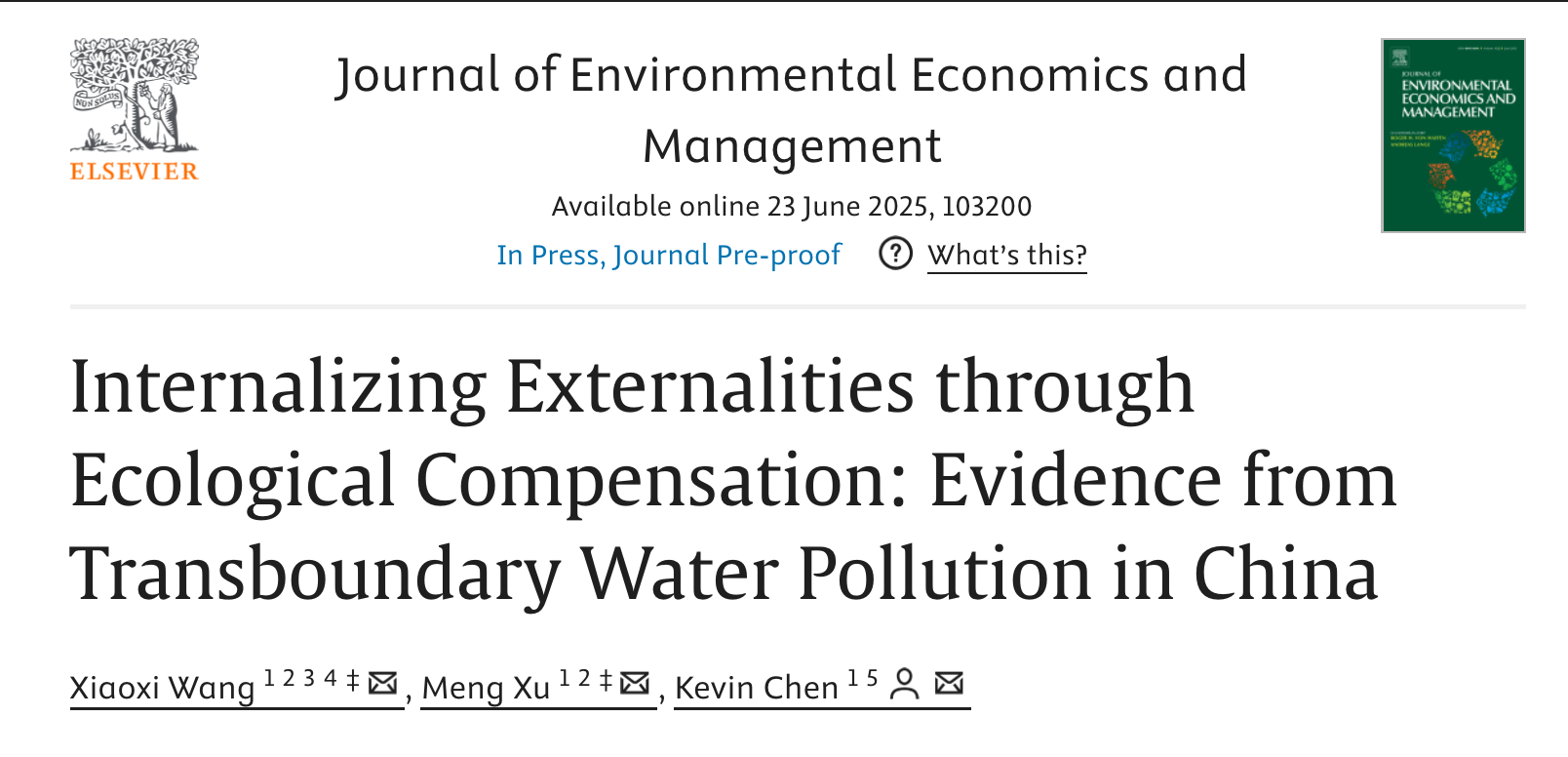近日,浙江大学中国农村发展研究院汪笑溪研究员、博士毕业生徐孟、陈志钢教授撰写的论文“Internalizing Externalities through Ecological Compensation: Evidence from Transboundary Water Pollution in China”在环境经济学顶刊Journal of Environmental Economics and Management (JEEM) 在线发表。

文章概要
跨行政边界的水污染治理问题因溢出效应和环境负外部性的存在,一直是流域水污染治理的难点之一。已有研究主要集中于检验边界污染的“搭便车”现象,但如何通过制度设计有效解决这一问题的证据仍相对缺乏。
本研究聚焦于中国近年来推行的流域内跨省生态补偿政策,系统评估了市场机制与中央政府监督相结合的治理机制对边界水污染控制的有效性。研究运用双重差分模型,识别了政策的水质改善效果及其作用机制。研究发现,政策有效降低了氨氮(NH3-N)浓度,且这一改善效果在试点和推广流域均显著体现,并具有长期持续性。进一步分析表明,减少工业废水排放量,提高城市污水处理率和减少生猪产量是水质改善的潜在渠道。
本研究为生态补偿内部化跨界负外部性提供了系统的经验证据,也为全球范围内解决流域跨界水污染问题提供了新视角。
英文摘要
This study examines the effects of China’s cross-provincial ecological compensation scheme (CpECS) on trans-boundary water pollution. Using a staggered difference-in-differences method, we find that the CpECS significantly reduces water pollution in terms of ammonia nitrogen (NH3-N) concentrations by 33.4%. By linking water quality with point-source and nonpoint-source pollution control practices, we find that these improvements result from reductions in industrial wastewater discharge and pig production, and improvement in municipal sewage treatment capacity. However, the scheme does not yield a significant reduction in chemical oxygen demand (COD) concentrations, likely due to a lack of incentives to exceed contractual targets in policy areas once those targets are met.
论文信息
Wang, X., Xu, M., & Chen, K. (2025). Internalizing Externalities through Ecological Compensation: Evidence from Transboundary Water Pollution in China. Journal of Environmental Economics and Management, 103200. doi10.1016/j.jeem.2025.103200
原文链接
https://www.sciencedirect.com/science/article/pii/S0095069625000841


